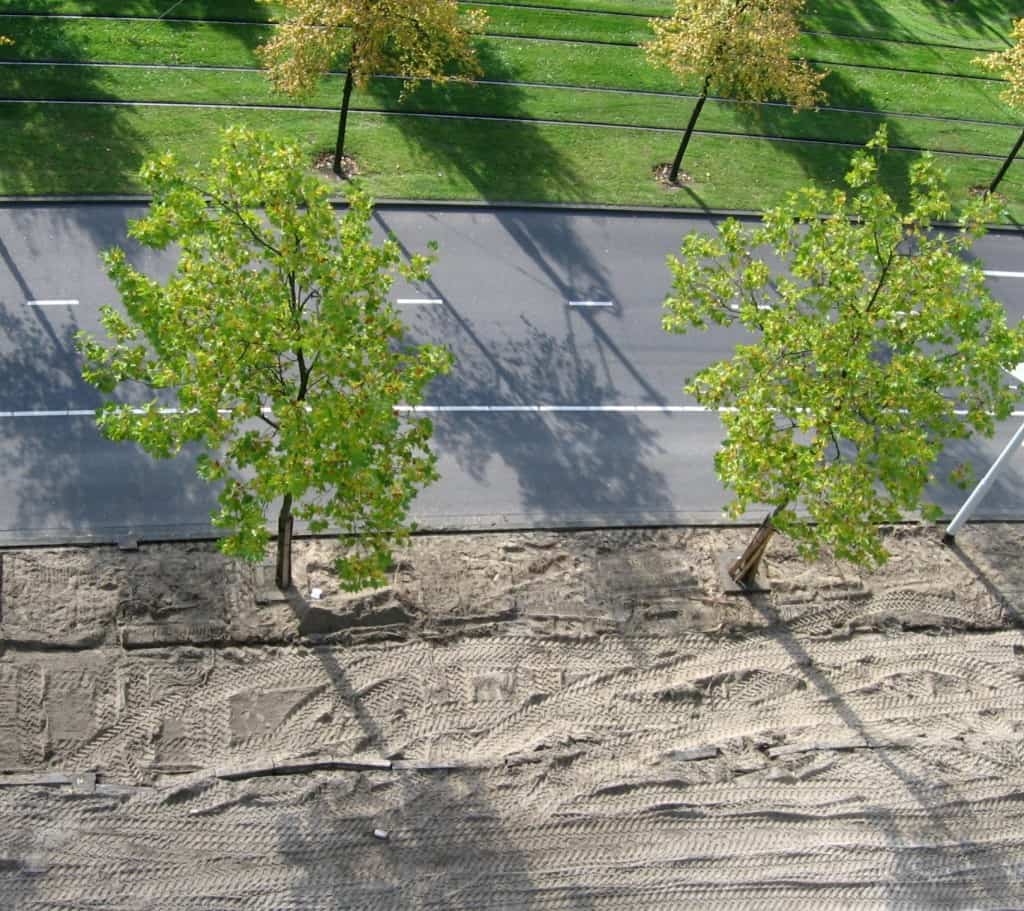Our journey through the 8 Tips for Buying Residential Lots and Land for a New Home continues with a look at the important Technical Due Diligence topic of roads and access.
Landlocked. It’s a real estate term that describes land completely surrounded by property owned by other parties, impacting the owner’s ability to freely access the land. This Tip can help you better understand access issues so that you can avoid buying property that is landlocked – or otherwise has inadequate access rights – in the first place.
Typically, lots for sale in newer residential communities don’t have access problems because developers work closely with the local planning departments to make sure all the new lots are designed properly and have proper access to public roads. So if you’re buying a lot in this type of community, your access likely will be pretty easy to confirm.
Even if you’re looking at land for sale in an older neighborhood or an undeveloped area, access for building lots typically is easy to verify with a survey and title review. But understand that having a road near the property doesn’t necessarily mean you have access to it. We have seen a property that did not have access to a paved road, just feet from the property line, because an adjacent landowner owned a small strip of land that blocked access to the road. In addition, some may assume a driveway from the public street is part of their property, only to find that it crosses land owned by a neighbor.
Access easements are not uncommon and are used to grant someone the right to cross land owned by another party, like that driveway over the neighbor’s land. If your sole or primary access to your lot is via an easement, make sure you investigate it thoroughly and use a real estate attorney to review it and confirm your rights:
- Time – Some easements are limited by time. Just because the Seller has been using the easement for access for years does not mean that it has not expired.
- Use – Easements may limit the type of use and who can use it. We once considered buying a property, but an easement was limited to access only and would not have clearly allowed us to bury utilities in the easement area. Also, if your use is not exclusive, then who else can use the easement area and how?
- Size – Is the easement wide enough for a vehicle – or two lanes if you need that for the property’s use? We prefer easements with specified dimensions, although sometimes easements are more generally described.
- Field Conditions – Survey the easement to see exactly where it is located on the adjacent land. We saw a deal fall apart because a neighboring landowner had obstructed the access easement for an undeveloped homesite by building a garage on it.
- Written – Easements always should be in writing and recorded in the land records. You may hear about prescriptive easements, easements by use, implied easements and other quirky methods for getting access to land that don’t involve written documents. While these methods sometimes prove valid, we don’t suggest that you try to rely on concepts like these to access land you wish to buy. Also, your “handshake” agreement with your neighbor won’t matter when he sells his property and you have a new neighbor. Have a clearly written access agreement.
Surveyors can confirm if the lot has access to a public road (whether directly or via an easement). Also, obtain adequate title insurance coverage for your access. This is pretty standard practice for industry professionals, but many people buying lots for new homes carelessly forego a survey to save closing costs. Sadly, the lack of a survey can prevent an owner from getting the title coverage they really need. Both surveys and title insurance are worth the cost and we will discuss these topics more in Tip #7.
Road Quality & Maintenance
Even when you’ve confirmed access for your lot, check out the condition of existing roads and learn whether you may be responsible for paying for road maintenance.
 Often roads in new communities are built by developers to the local government’s required standards, and later are turned over to the government for maintenance and upkeep. In other situations, new communities are built with private roads that are to be maintained by the property owners’ association. Or access roadways may be directly maintained by one or more individual landowners. Be aware of any potential road maintenance responsibilities that come with ownership. Also, are there adequate measures to make sure other property owners will pay their portion of the collective costs for private roads?
Often roads in new communities are built by developers to the local government’s required standards, and later are turned over to the government for maintenance and upkeep. In other situations, new communities are built with private roads that are to be maintained by the property owners’ association. Or access roadways may be directly maintained by one or more individual landowners. Be aware of any potential road maintenance responsibilities that come with ownership. Also, are there adequate measures to make sure other property owners will pay their portion of the collective costs for private roads?
![]() Beware of “Zombie Neighborhoods”, where roads and amenities may have been built but the developer was not able to sell enough homes or lots to pay for ongoing maintenance costs. We’ve seen communities where only a few building lots had sold before the downturn, and now the private roads are riddled with potholes, sunken areas and weeds surrounded by vacant lots. You may not be able to rely on the developer to finish the job, and may have to pay more than your fair share for the neighborhood’s upkeep.
Beware of “Zombie Neighborhoods”, where roads and amenities may have been built but the developer was not able to sell enough homes or lots to pay for ongoing maintenance costs. We’ve seen communities where only a few building lots had sold before the downturn, and now the private roads are riddled with potholes, sunken areas and weeds surrounded by vacant lots. You may not be able to rely on the developer to finish the job, and may have to pay more than your fair share for the neighborhood’s upkeep.
We should note that developers may sell lots or homes in new neighborhoods even though some roadwork needs to be completed. This is not uncommon and shouldn’t necessarily be a concern. The developer probably is protecting the road surface from traffic for new home construction, and will finish the final paving when fewer homes are left to be built. But ask questions and be comfortable with the response.
The next post in this series will get into more detail about Title review and restrictions.
You also may want to check out our page dedicated to Tips & Resources for Buying Lots & Land, which gathers many different helpful resources in one place for lot and land buyers and provides tips about using LotNetwork.com to help you in your search.
Related articles
- 8 Tips for Buying Residential Lots and Land for a New Home (lotnetwork.com)
- Decide Your Community Style: Tip #1 for Buying Lots and Land (lotnetwork.com)
- Choosing Your Builder: Tip #2 for Buying Lots and Land (lotnetwork.com)
- Check from Satellite to Street: Tip #3 for Buying Lots and Land (lotnetwork.com)
- The Site Visit: Tip #4 for Buying Lots and Land (lotnetwork.com)
- Utilities & Infrastructure: Tip #5 for Buying Lots and Land (lotnetwork.com)
- Roads & Access: Tip #6 for Buying Lots and Land (lotnetwork.com)
- Research Title & Restrictions: Tip #7 for Buying Lots and Land (lotnetwork.com)
- Use Real Estate Professionals: Tip #8 for Buying Lots and Land (lotnetwork.com)


